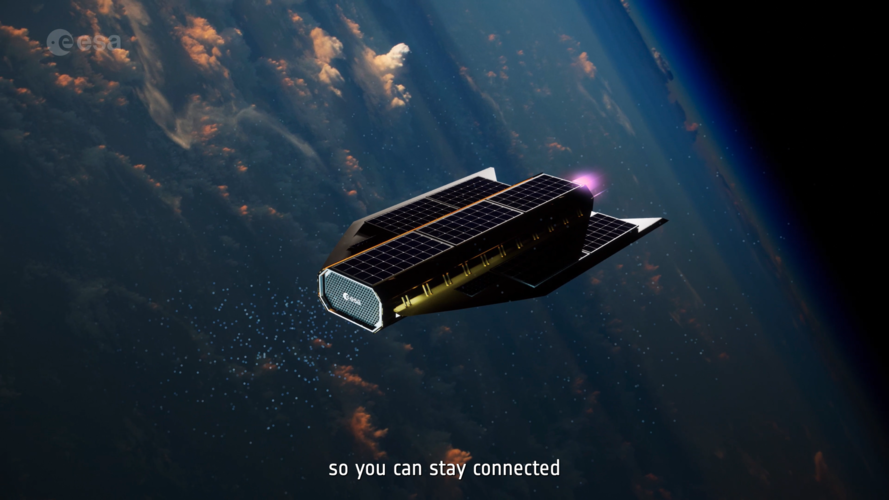
Copernical Team
Astronauts found to process some tasks slower in space, but no signs of permanent cognitive decline
This request seems a bit unusual, so we need to confirm that you're human. Please press and hold the button until it turns completely green. Thank you for your cooperation!
Press and hold the button
If you believe this is an error, please contact our support team.
185.132.36.159 : 0447b0e8-68b9-4b16-b50e-90c3cbf6
SpaceX fails to repeat Starship booster catch, orbiter makes on target splashdown
 SpaceX's Starship megarocket blasted off on its latest test flight Tuesday, with President-elect Donald Trump joining Elon Musk to witness the spectacle firsthand in the latest sign of their ever closer ties.
But the Republican leader was deprived of the chance to see the booster stage caught in the launch tower's "chopstick" arms, an engineering marvel demonstrated by the company last month
SpaceX's Starship megarocket blasted off on its latest test flight Tuesday, with President-elect Donald Trump joining Elon Musk to witness the spectacle firsthand in the latest sign of their ever closer ties.
But the Republican leader was deprived of the chance to see the booster stage caught in the launch tower's "chopstick" arms, an engineering marvel demonstrated by the company last month Video: Proba-3's journey to see the sun's corona
This request seems a bit unusual, so we need to confirm that you're human. Please press and hold the button until it turns completely green. Thank you for your cooperation!
Press and hold the button
If you believe this is an error, please contact our support team.
185.132.36.159 : 19873951-d9a7-43bc-ada0-2aeb6869
Space for Shore: Sentinel-1 reveals Arctic glacier retreat

As Arctic temperatures rise, marine-terminating glaciers—especially in places like Svalbard—are undergoing rapid retreat and intensified calving.
The ESA-funded Space for Shore project utilises radar data from the Copernicus Sentinel-1 mission to provide precise, year-over-year insights into glacier retreat and calving intensity, particularly in areas like Kongsfjorden, where notable glaciers are experiencing significant retreat.
Researchers study the roar of SpaceX's Starship and its impact on communities and the environment
This request seems a bit unusual, so we need to confirm that you're human. Please press and hold the button until it turns completely green. Thank you for your cooperation!
Press and hold the button
If you believe this is an error, please contact our support team.
185.132.36.159 : c042a820-e66b-452f-adf5-b0facdba
Advanced Research in Telecommunications Systems (ARTES) 4.0
 Video:
00:03:18
Video:
00:03:18
Satellite communication underpins everyday life, enabling fundamental improvements not just in communication, but also in transport, healthcare, safety and security, and environmental services. The Advanced Research in Telecommunications Systems (ARTES) 4.0 programme enables European and Canadian industry to explore, through research and development, innovative concepts that stimulates the wider economy, creating new business and jobs across nearly every industry. ARTES 4.0 supports the production of market-leading and cutting-edge products and services within a fiercely competitive global satellite communications market.
Learn more: https://connectivity.esa.int/
China launches satellite for ocean salinity detection
 China launched a new satellite designed to detect ocean salinity on Thursday from the Taiyuan Satellite Launch Center in Shanxi Province, northern China, as reported by the China National Space Administration (CNSA).
The satellite was successfully sent into orbit at 6:42 am Beijing Time, carried by a Long March-4B Y53 rocket. This satellite aims to close the gap in China's high-precision g
China launched a new satellite designed to detect ocean salinity on Thursday from the Taiyuan Satellite Launch Center in Shanxi Province, northern China, as reported by the China National Space Administration (CNSA).
The satellite was successfully sent into orbit at 6:42 am Beijing Time, carried by a Long March-4B Y53 rocket. This satellite aims to close the gap in China's high-precision g Navigating the Digital Skies: How Adtech is Revolutionizing Space Tourism Marketing
 The space tourism industry, once a distant dream reserved for science fiction, is now hurtling toward reality at escape velocity. Companies like SpaceX, Blue Origin, and Virgin Galactic have turned cosmic adventures into tangible experiences - albeit ones with hefty price tags. With this monumental shift, the marketing landscape for space tourism is equally transforming, propelled by innovative
The space tourism industry, once a distant dream reserved for science fiction, is now hurtling toward reality at escape velocity. Companies like SpaceX, Blue Origin, and Virgin Galactic have turned cosmic adventures into tangible experiences - albeit ones with hefty price tags. With this monumental shift, the marketing landscape for space tourism is equally transforming, propelled by innovative Think fast: A missile-defense system built for speed
 Satellites positioned high above Earth transmit crucial data to the surface in under a second, appearing swiftly on a computer screen monitored by a U.S. Space Force operator. The operator's swift understanding of this data is vital for rapid decision-making during high-stakes missile defense situations.
"Speed is everything. Speed to mission, speed to impact, speed to performance," said J
Satellites positioned high above Earth transmit crucial data to the surface in under a second, appearing swiftly on a computer screen monitored by a U.S. Space Force operator. The operator's swift understanding of this data is vital for rapid decision-making during high-stakes missile defense situations.
"Speed is everything. Speed to mission, speed to impact, speed to performance," said J 
